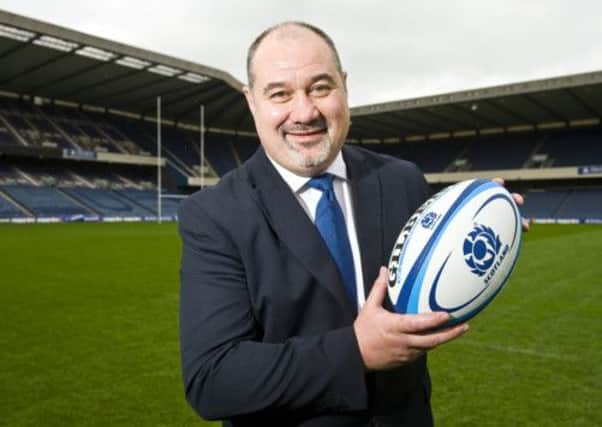Allan Massie: English clubs’ confusion laughable


Indeed, the response of sections of the London press to the news that the French clubs have obeyed their national federation and agreed to remain in the Heineken Cup, for the time being anyway, calls to mind the old chestnut of the mother watching a passing-out parade who complained that “they’re a’ oot o’ step but oor Jock”.
The confusion was, after all, created by the original decision of the English and French clubs to walk away from the Heineken and its governing body, the ERC, and set up a rival competition. It was then worse confounded when English Premiership Rugby limited signed a TV deal with BT Sport, selling what wasn’t then theirs to sell – that is, matches against clubs from other countries who had not been consulted about the deal and had not therefore committed themselves to play in this new competition.
Advertisement
Hide AdAdvertisement
Hide AdThe simple truth is that it was the decision of the English and French clubs to go ahead with plans for a new competition without securing agreement from Scotland, Ireland, Wales and Italy which created confusion in the first place; and it is the bullish arrogance of English Premiership Rugby and a number of English club owners or chairmen which has created so much ill-feeling.
It’s too soon to cry “Rejoice – the Heineken Cup has been saved”, because the story will have a few more twists and turns before a compromise acceptable to all interested parties has been reached, but, for the moment, we in Scotland should congratulate Mark Dobson and his colleagues at the SRU on standing firm and fighting their corner. We should also thank the President of the FFR, Pierre Camou, whose firm stance has helped bring the French clubs back on board.
Meanwhile, one trusts that TV coverage of the Autumn internationals will persuade the IRB to revise the regulations or guidelines that apply to the use of the Television Match Official. Originally, his role was restricted to determining whether a try had been scored or not. Essentially, this meant that he had to decide if the ball had been properly grounded by a player who was within the field of play; and nothing else. This role has now been expanded to cover the lead-up to the ”try”, and this lead-up may now go back several phases. Sometimes, the TMO has difficulty in locating the particular moment in the run of play that the referee wants him to look at. So the players stand around looking puzzled and the game is held up for a couple of minutes.
The argument is, of course, that this makes for better, and therefore fairer decisions. The referee may have failed to spot a forward pass a couple of phases earlier, but once the TMO finds it, what had seemed to be good try may be disallowed. Fair enough, you may say. However, fairness is not guaranteed. One incident in the England-New Zealand match illustrates this.
Owen Farrell kicked ahead and was taken out late by an All Black. A penalty was awarded where the ball landed, and Farrell, as I recall, kicked the goal. Fair enough, you may say, justice done. However, Richie McCaw complained to the referee that he has himself been obstructed or taken out by an English player as he moved to tackle Farrell before he kicked. The referee replied that he couldn’t do anything about that because he hadn’t seen it. Yet the TV replays showed that McCaw had indeed been obstructed and that, if the referee had seen this, New Zealand would have been awarded a penalty, which would have been within kickable range.
Now I am not saying that the referee should have told McCaw that he would ask the TMO to review the incident. My point is that if you are going to appeal to the TMO, where do you stop? We all know that rugby is a confoundedly complicated game, with many laws which are frequently infringed: a really zealous referee could probably find something to whistle up at almost every scrum and breakdown. Wise referees decide – on the spur of the moment – whether or not an infringement has had a significant influence on the run of the game. Nigel Owens is one who has, with experience, become less pernickety and more confident of his own judgement; his refereeing of the Ireland-New Zealand game last week was exemplary.
We should trust the referee on the field, and he should trust his own judgement. Asking the TMO to review long passages of play doesn’t make for a better game, and not even a fairer one. His role should be limited to what it originally was – with only one exception: it is right to ask him to cast back when there is a question of foul play.